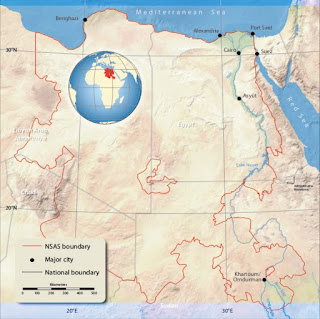7. The Impact of Climate Change on the Social Contract

Climate change is expected to alter the quantity and spatial distribution of rainfall across Africa, this will have ensuing impacts on water systems ( Carter & Parker, 2009 ) and especially groundwater recharge functions which are becoming increasingly vital to water accessibility in the anthropocene ( Scheumann & Alker, 2009 ), despite scientific understanding of groundwater aquifers being notably underdeveloped. Reports evidencing the decline of the water table across groundwater aquifers point towards risks of irreversible salinization of groundwater as human reliance on it increases (ibid, 2009). Furthermore due to the specificity of the geological formation per aquifer, there is no common rule for how changing water levels in one area will affect another area of the aquifer, nor rules as to recharge rate or how human impact will create change. In the case of ancient groundwater aquifers such as the Nubian Sandstone Aquifer System, its substantial depth results in the irre